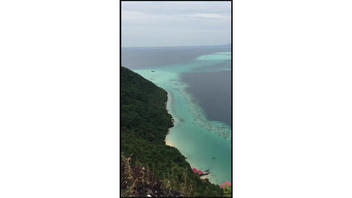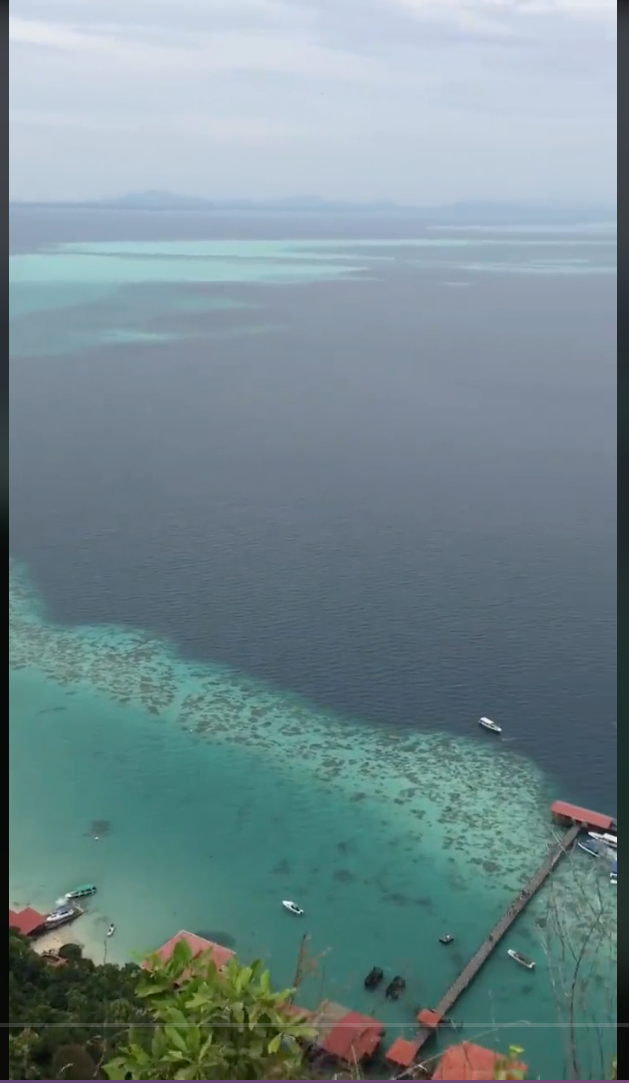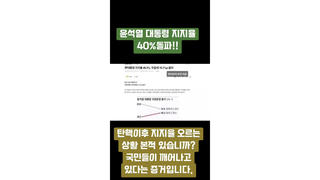
Is the darker blue body of water shown in this post related to Japan's release of nuclear wastewater from its damaged Fukushima nuclear power plant? No, that's not true: The post shows images of the Tun Sakaran Marine Park in Malaysia, which look identical to photos of the park shown in a 2019 Trip Advisor post. The darker-colored water shown is a factor of the water's depth, not its content.
The claim appeared in a video by a TikTok account @nangezaicai on August 29, 2023 (archived here) with links to #Dischargeofcontaminatedwater #Nuclearpollution #Fukushima and with a caption translated into English from Korean by Lead Stories staff that reads:
Sea pollution
This is what the post looked like on TikTok at the time of writing.

(Source: TikTok screenshot taken on Tue Nov 7 03:35:12 2023 UTC)
Lead Stories geolocated the image and matched it to a photo that appeared in a 2019 Trip Advisor article (archived here) showing the Tun Sakaran Marine Park in Malaysia. Otherwise known as Semporna Islands Park, this marine park is located on the east coast of Sabah, Malaysia, and consists of eight other islands and two patch reefs. According to the Sabah Parks website, the island is a popular tourist destination for divers due to its rich marine life.

(Source: Trip Advisor screenshot taken on Tue Nov 7 03:47:23 2023 UTC)
The ocean is dark blue in parts compared to areas closest to shore because of the depth of the water, which causes colors in the light spectrum to be absorbed in deeper water. The National Ocean Service of the US National Oceanic and Atmospheric Administration explains it this way:
Most of the ocean, however, is completely dark. Hardly any light penetrates deeper than 656 feet (199 meters), and no light penetrates deeper than 3,280 feet (999 meters).













